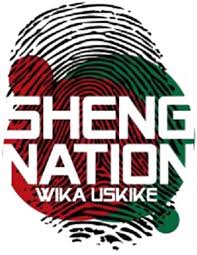Language attitudes towards Sheng: deterioration or unification?
This post is a rewritten version of my paper for the course ‘Postcolonial Linguistics’, offered at Linguistics at Aarhus University in the autumn of 2013. I wanted to delve into different language attitudes towards Sheng – and what better way to do it than through Youtube video comments?
Sheng? WTF?
Sheng is as a language variety of Swahili – a mixture of Swahili, English and a host of regional languages of Kenya. The grammatical structure stems from Swahili while incorporating terms from English and indigenous Kenyan tongues (e.g. Dholuo and Kikuyu). Consider the following example (adapted from Abdulaziz and Osinde 1997:56):
Kithora ma-doo za mathee
steal PL-money of mother
‘To steal my mother’s money.’
Here, kithora stems from the Kikuyu … ↪


